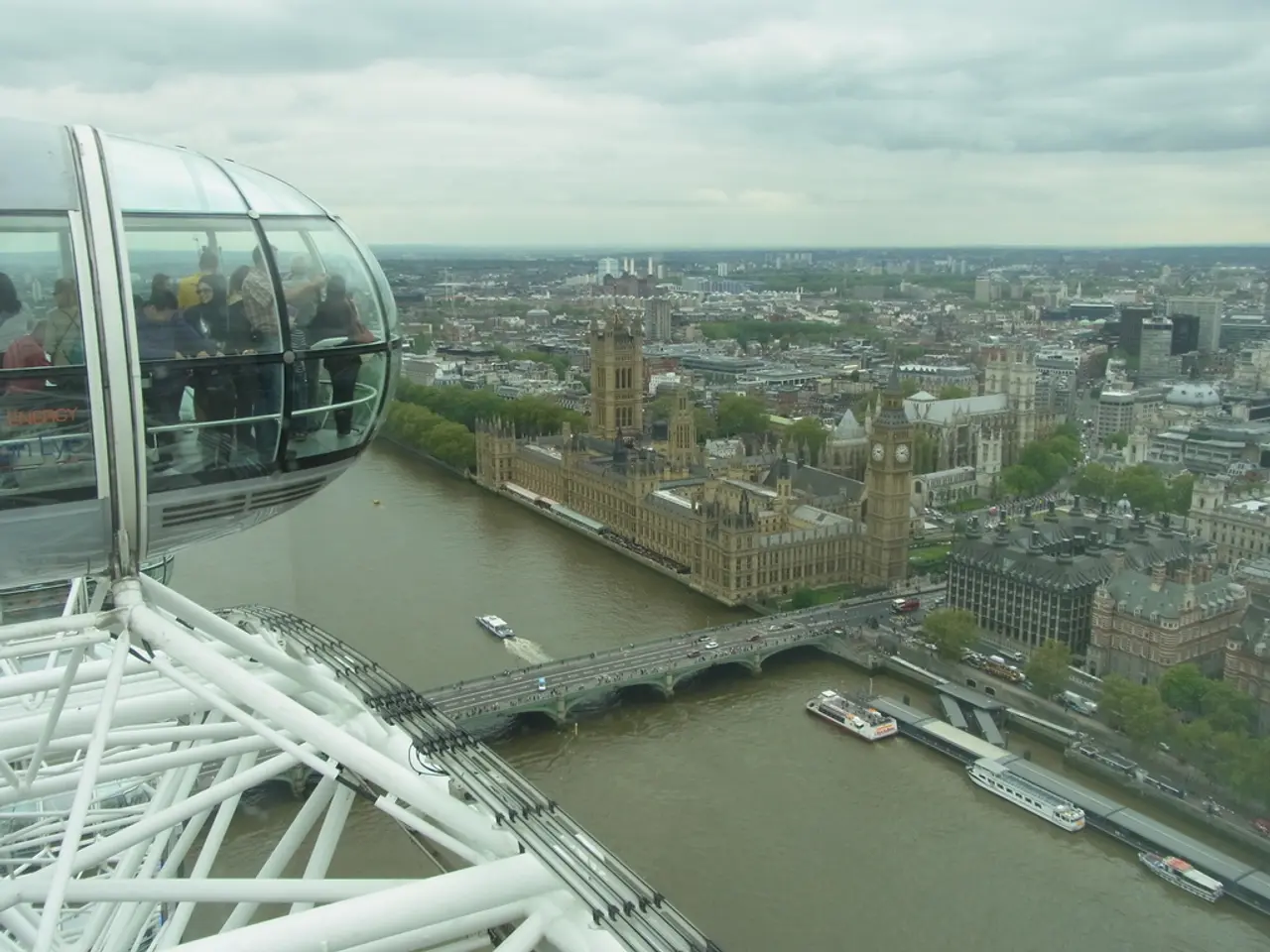"Klöckner views the German Parliament, Bundestag, as a coveted objective"
The German Bundestag, renowned as the most-visited parliament globally with over two million visitors annually, is currently undergoing significant efforts to improve its security measures, both in terms of physical safety and cybersecurity.
These efforts are driven by a series of cyberattacks that have targeted the Bundestag, with the largest attack occurring in May 2015. The most recent attack resulted in the parliament's IT system needing a complete overhaul.
Bundestag President Julia Klöckner has been at the forefront of these initiatives, advocating for beefed-up defenses against cyberattacks and proposing a new law for parliamentary police to enhance the safety of the Bundestag and its politicians. This proposed law includes improving visitor ID checks and obtaining a legal basis that would allow the Bundestag police to receive information about potential threats or individuals who have already been noticed as endangering the constitution.
While specific legislative progress on the Bundestag Police Act is not detailed in recent reports, the necessity for such improvements is recognized due to the frequent cyberattacks and the high volume of visitors to the Bundestag.
In terms of physical security, the Bundestag has tightened access rules and controls multiple times in the past, most recently in March last year. All visitors to the Bundestag have to go through a security check, but there is no protection between the visitor gallery and the plenary hall. Klöckner has also emphasized the need for a second round of checks if someone has already been noticed.
The focus on cybersecurity and physical security improvements suggests that legislative efforts are ongoing, though no specific timeline for the enactment of the proposed law has been mentioned in the available reports. The Bundestag President, Julia Klöckner, believes the parliament needs to better protect itself against cyber-attacks, with eligibility checks, including for employees who apply for a house pass, being conducted to ensure the safety of MPs and those present in the Bundestag.
Reliability checks have been expanded to include parliamentary staff and factions without physical access to the Bundestag, but with access to its information and communication systems. The federal government has also suspected Russia's involvement in the cyber-attack on the Bundestag in 2015.
As the Bundestag continues to grapple with these security challenges, it remains committed to providing a safe and secure environment for its members and visitors.
- The Bundestag's push for enhanced security measures extends to policy-and-legislation, with Julia Klöckner advocating for a new law to strengthen parliamentary police, improve visitor ID checks, and establish a legal basis for receiving threat information.
- Technology plays a key role in these security efforts, as the Bundestag undergoes a complete overhaul of its IT system in response to a series of cyberattacks, including the largest one in May 2015.
- The focus on cybersecurity and physical security improvements, as well as the expanse of reliability checks to include parliamentary staff and factions, underscores the general-news worthiness of the Bundestag's ongoing efforts to protect itself against potential threats, with politics playing a significant role in shaping these security policies.




